The “Getting to Know” blog series features the work of State CTE Directors, state and federal policies, innovative programs and new initiatives from the Advance CTE staff. Learn more about each of these topics and the unique contributions to advancing Career Technical Education (CTE) that Advance CTE’s members work on every day.
 Meet Dan Hinderliter! Dan is a State Policy Associate at Advance CTE and supports a number of different national projects. As a site liaison for the New Skills ready network, Dan works with two sites (Columbus, Ohio and Indianapolis, Indiana), providing resource and research support while also serving as a direct link to the national project team. He also works on site snapshots, the annual report and quarterly newsletters, as well as major publications that highlight promising national, state and local practices aligned with the principles of the New Skills ready network.
Meet Dan Hinderliter! Dan is a State Policy Associate at Advance CTE and supports a number of different national projects. As a site liaison for the New Skills ready network, Dan works with two sites (Columbus, Ohio and Indianapolis, Indiana), providing resource and research support while also serving as a direct link to the national project team. He also works on site snapshots, the annual report and quarterly newsletters, as well as major publications that highlight promising national, state and local practices aligned with the principles of the New Skills ready network.
Dan also supports the modernization of the National Career Clusters® Framework and spearheads the Year in Review, the annual aggregation of state policy impacting CTE. As part of the Year in Review process, Dan regularly tracks state-level legislation and other policy actions.
Q: Considering your work on the New Skills ready network initiative, how are the six sites leveraging stakeholder engagement to advance career pathways?
A: Each of the six New Skills ready network sites is working to leverage stakeholder engagement in some capacity to advance career pathways. First, because each of the sites is composed of a variety of stakeholders, engagement with business and industry, postsecondary partners and K-12 institutions has to happen to ensure each voice is involved in and buys into the work of the site. Outside of the project teams, however, most sites are doing some level of stakeholder engagement involving learner and family communications practices. Some sites are surveying parents and learners to understand what resonates with them about available career pathways, while others have done focus groups to understand where there are gaps for learners in specific programs. Columbus, Ohio’s project team hired a minority-led communications firm, with roots in Columbus, to help share consistent messaging and work to understand how each stakeholder can be better supported.
View the 2020-2021 site snapshot for Columbus, Ohio here.
Q: Earlier this year, Advance CTE and the Association for Career and Technical Education (ACTE) released State Policies Impacting CTE: 2020 Year in Review where industry partnership was a frequently addressed topic area. Are there any states that can serve as a model for policy actions around stakeholder engagement?
A: Every year, states enact new legislation that impacts how each state engages with stakeholders, either through input gathering or through information sharing. Many states, including Colorado, Hawai’i, Idaho and Missouri (among others), passed legislation this year requiring a state agency to collect and disseminate information that allows learners to make more informed decisions about their futures, including information about in-demand jobs or industry recognized credential attainment. Other states are using legislative action to improve equity and access in part through stakeholder engagement; Oregon and Washington, for example, now require institutions to collect feedback or input from diverse or historically marginalized stakeholder groups to inform new practices and strategies that will increase access to high-quality CTE programs for those groups. At the beginning of 2022, we will release our state policy tracker for 2021 which includes the above legislative actions and others.
Q: One of the foundational commitments within CTE Without Limits is based on stakeholder engagement. How can states, through such partnerships, ensure each learner reaches success in a career of their choice?
A: Advance CTE’s shared vision, CTE Without Limits, calls for CTE to be incredibly learner-centric and for programs to ensure that the learner voice is incorporated into each decision about career pathways or programs. As states continue to expand access and equity in their CTE programs and work toward dismantling systemic barriers in CTE, the learner voice must be an integral part of these conversations, as only the learner who participated in the program can fully understand the consequences of decisions made at each level. At the same time, states and local institutions can continue to expand offerings by building partnerships with community based organizations to offer learner supports or with business and industry to offer new or improved work-based learning opportunities. By including opportunities for stakeholder groups like learners, their families and local businesses to provide input into decisions surrounding CTE, states can ensure that their career pathways and CTE programs are truly aligned with the needs of their communities.
Q: Lastly, Advance CTE announced the modernization of The National Career Clusters® Framework. How has Advance CTE prioritized stakeholder engagement and the voices of the field in this work?
A: Though we don’t yet know what our end product will look like at the conclusion of these modernization efforts, we did know the process had to be highly collaborative to ensure everyone buys into whatever the outcome happens to be. As such, we have included a lot of opportunity to incorporate feedback from the field; we convened an expert kitchen cabinet to provide insights about the purpose and uses of the Framework, opened a crowdsourcing portal to collect feedback from the larger field about critical changes they’d like to see, and held workshops to assist in the prototyping of a new Framework. In this next phase of work, we’re hoping to hold focus groups to discuss the future of the Framework. As we near a model for a new, modernized Framework, we are hoping to have many more conversations with stakeholders about how they can implement the Framework in their own state and community to ensure that the modernized Framework is implemented with fidelity.
For resources and tools to increase stakeholder engagement in CTE, visit the Learning that Works Resource Center.
Brittany Cannady, Senior Associate Digital Media


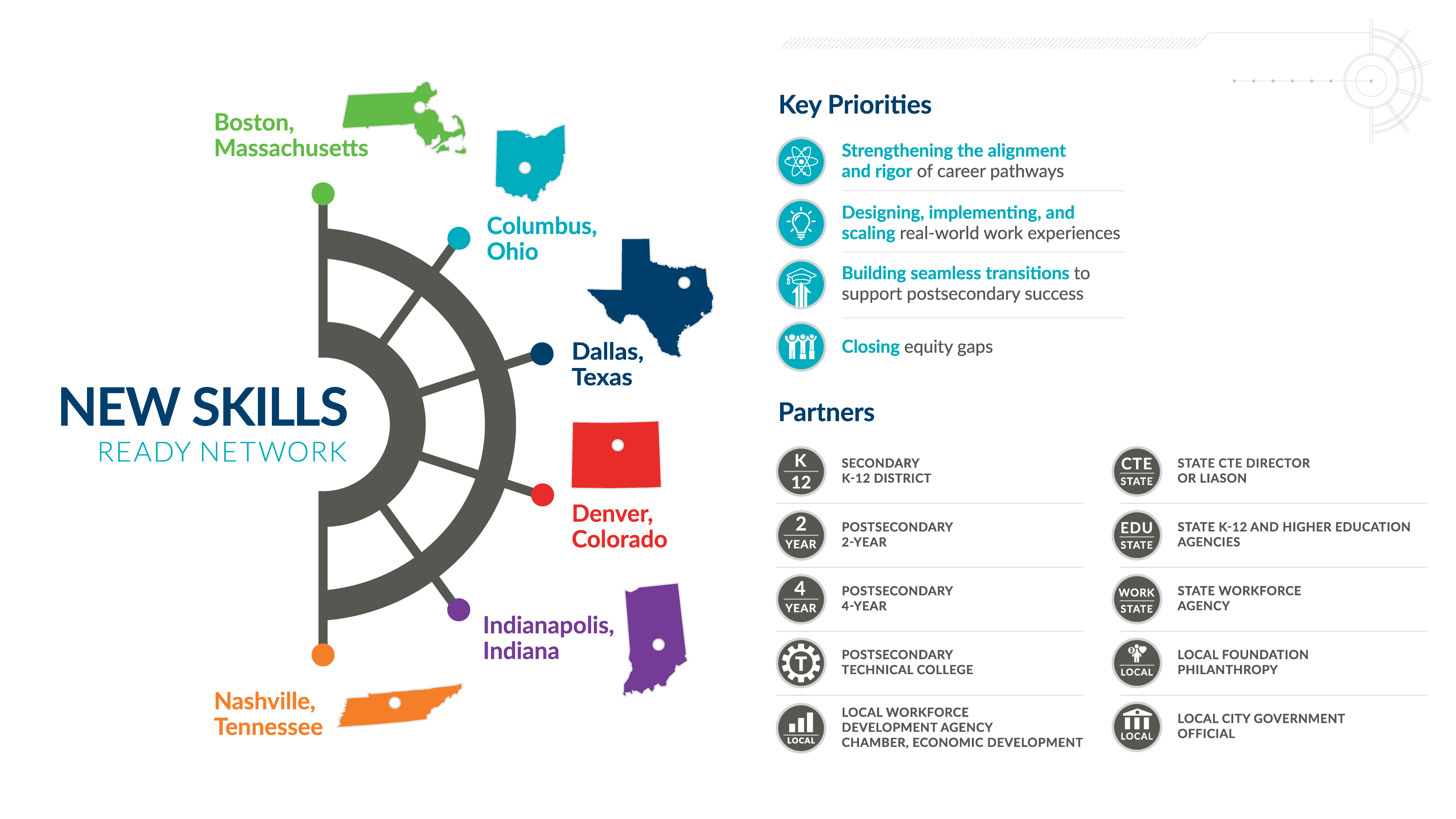
 Meet Christina Koch! Christina serves in the role of Policy Associate for Advance CTE. Christina works on projects related to state policy, including the New Skills
Meet Christina Koch! Christina serves in the role of Policy Associate for Advance CTE. Christina works on projects related to state policy, including the New Skills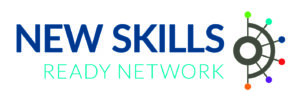 Today, Advance CTE and Education Strategy Group (ESG) released an
Today, Advance CTE and Education Strategy Group (ESG) released an 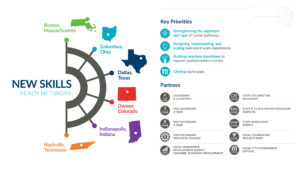
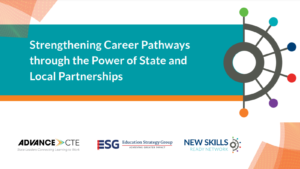 Intentional and early collaboration between state and local leaders is vital to ensuring success in high-quality career pathways for all learners.
Intentional and early collaboration between state and local leaders is vital to ensuring success in high-quality career pathways for all learners. 
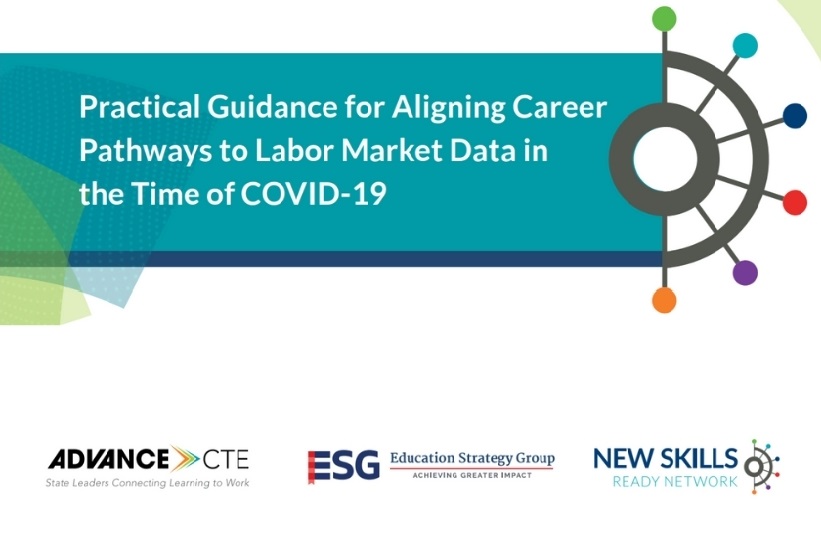 A career pathway is a progressive sequence of at least three courses that is aligned to high-skill, high-wage, in-demand occupations; spans secondary and postsecondary; reinforces academic learning with related work-based learning experiences; and embeds opportunities for students to earn both related postsecondary credit in a degree-granting program and industry-recognized credentials.
A career pathway is a progressive sequence of at least three courses that is aligned to high-skill, high-wage, in-demand occupations; spans secondary and postsecondary; reinforces academic learning with related work-based learning experiences; and embeds opportunities for students to earn both related postsecondary credit in a degree-granting program and industry-recognized credentials.  Build Your Future is hosting a construction video contest, I BUILT THIS, and giving away more than $20,000 in prizes. Learn more and submit a video
Build Your Future is hosting a construction video contest, I BUILT THIS, and giving away more than $20,000 in prizes. Learn more and submit a video 